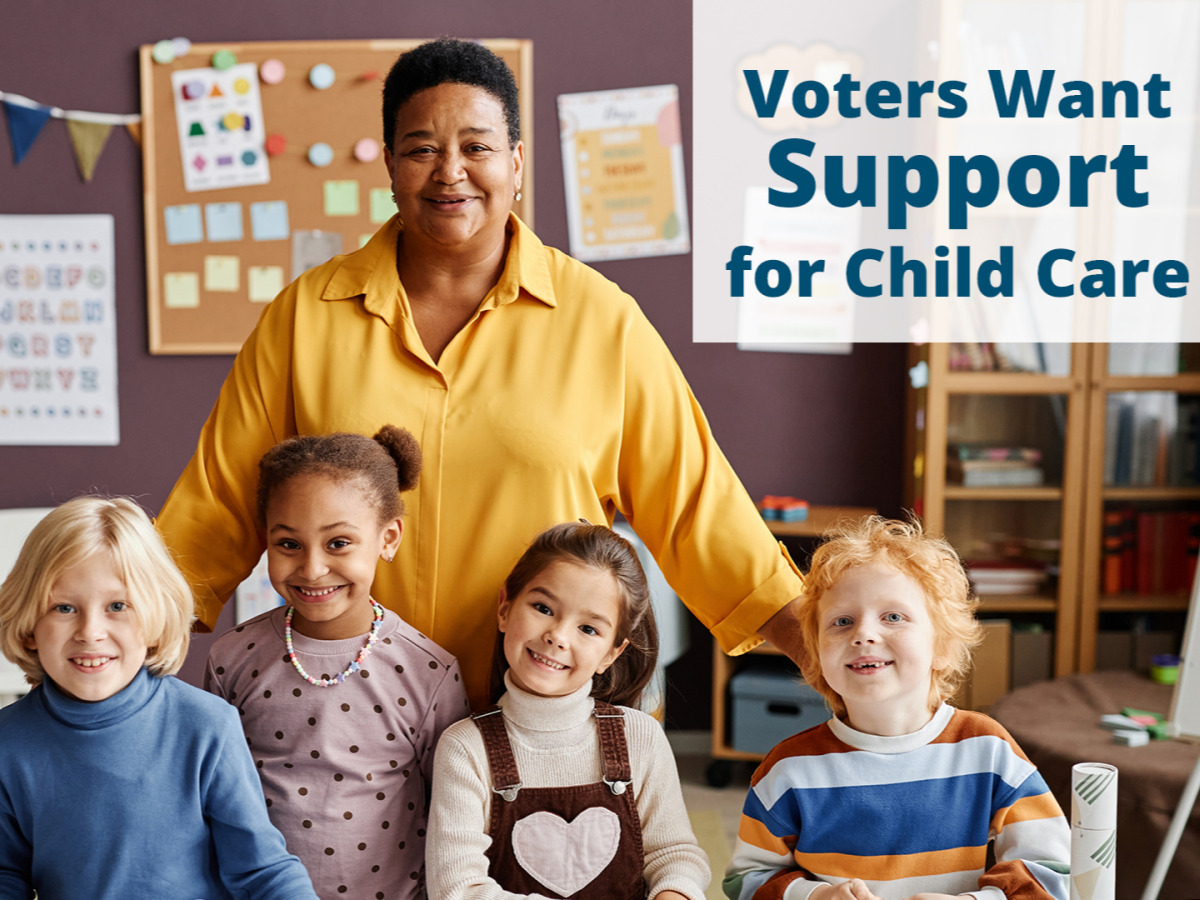Voters Want Support For Child Care
July 15, 2024

The lack of affordable, quality child care is a major area of concern across all demographics, family structures, and income levels in the United States. In fact, it’s the biggest challenge that parents want their elected officials to know about, as parents need child care to support their children’s physical health, emotional well-being, and development of life-long skills.
Almost 90% of voters want elected officials to have a plan or policies to help working parents afford high-quality child care. Voters also recognize the importance of child care for the American economy, with 68% of all voters, across the political-spectrum, saying access to high-quality, affordable child care is essential to strengthening the economy.
Parents not only want additional support for themselves, but they also want assistance for child care providers directly. One important program that helps providers cover their food costs and keep care affordable for families, is the Child and Adult Care Food Program (CACFP). Approximately 67% of family child care homes and 61% of child care centers participate in this federal reimbursement program.
Child care programs participating in the CACFP provide a higher-quality of care, as they are more likely to use a curriculum or prepared learning activities compared to non-participating programs. Participating programs are more likely to be located in low-income, diverse neighborhoods and more frequently serve children experiencing food insecurity – meeting another crucial need for the families in their community. Where they are unable to help, programs participating in the CACFP are more likely to connect families to additional support services in relation to non-CACFP child care providers.
As child care in general struggles and providers close their doors, families are not only losing access to child care, but they are also losing access to the critical supports of the Child and Adult Care Food Program. Almost 20,000 child care providers stopped participating in the CACFP between 2019 and 2023, with 70% no longer operating a child care all together.
The child care infrastructure is in desperate need of support, not only to ensure that parents are able to work, but also to ensure that care is high-quality and children have a safe environment to develop and receive nutritious meals.
